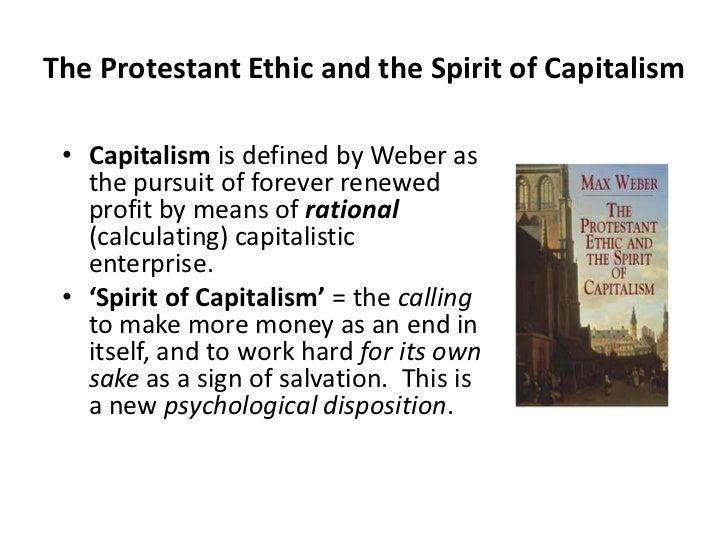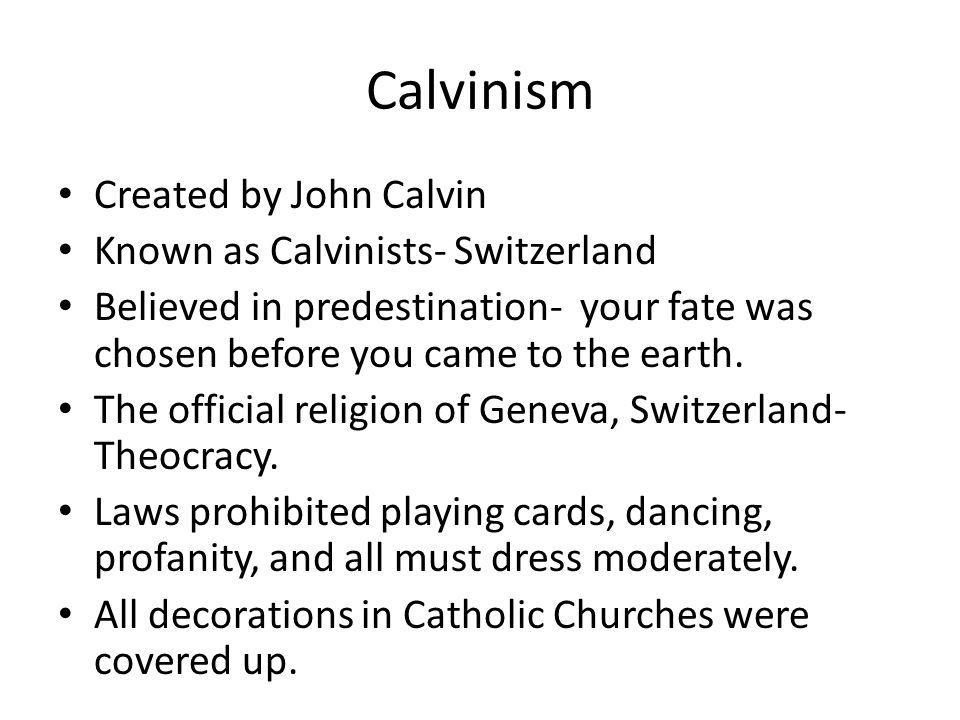
Relevance: Sociology: Paper I: Sociological Thinkers: Max Weber: Protestant Ethic and the Spirit of capitalism
INTRODUCTION

Weber located a positive relationship between the protestant ethics and the spirit of capitalism. Western capitalism according to weber, assumed its shape because it was supported by a certain belief system, namely the “protestant ethic”. Weber argued that the protestant ethic is closely associated with the spirit of capitalism. In order to bring out this inter-relationship, Weber constructed ideal types of both, the protestant ethics and the spirit of capitalism. However it is the inter-relationship and interdependence of “ideational” and “material” factors in history.
The Spirit of Capitalism:
Capitalism in Weber’s thought:
As far as capitalism is concerned Weber says it is a huge historical movement in a specific geographical and cultural area. The desire for wealth or profit is as old as human history. Wealth has long been regarded as a symbol of power, status and prestige. But never before in human history did the desire for wealth assume the organised and disciplined form that it did in modern or rational capitalism. It is this rational capitalism that Weber wanted to study. He distinguishes between traditional or adventurist capitalism of former times and rational capitalism of modern times.
According to Weber, the capitalists desired wealth not for enjoyment or luxurious living. They wanted it so that they could use it to make more wealth. The thirst for money-making for its own sake is the very essence of modern capitalism. Capitalism is an economic system which aims at the unlimited accumulation of profit through the rational organisation of production.

Capitalism arose in the western nations like England and Germany, which experienced what we call the “Industrial Revolution.” The growth of the factory system, new techniques of production, new tools and machines made it possible for the capitalists or the owners to earn vast amounts of money. The production process had to be rationally organised; in other words, efficiency and discipline were essential.

The worker was a means to an end, the end being profit. The attitude towards work was that it should be done well not because are had to do it, but because it carried an intrinsic reward. Hard work and efficient work was an end in itself. Weber contrasted this work-ethic with another type which he termed traditionalism.
Here, workers prefer less work to more pay, relaxation to exertion. They are either unable or unwilling to take up new work method and techniques. In capitalism, the worker is regarded by the capitalist as a means to an end. But under traditionalism, the worker-employer relationship is informal, direct and personal.
Traditionalism hampers the growth of capitalism. Capitalism stresses individualism, innovation and the relentless pursuit of profit. Traditionalism, as described above is characterised by a much less disciplined and efficient system of production.
The spirit of capitalism is a work-ethic which calls for the accumulation of wealth for its own sake. To do so, work has to be organised in an efficient disciplined manner. Hard work is a virtue that carries intrinsic rewards. The spirit of capitalism demands individualism, innovation, hard work and the pursuit of wealth for its own sake. It is thus an economic ethic.
Protestantism and the Ethics:
Protestantism, as the name suggests, it is a religion of protest. It arose in the 16th century in Europe in the period known as the “Reformation”. Its founding fathers like Martin Luther and John Calvin broke away from the Catholic Church. They felt that the church had become too immersed in doctrines and rituals. It had lost touch with the common people. Greed, Corruption and vice had gripped the church. Priests had a life-style more suitable for princes.
The protestant sects that sprang up all over Europe tried to recapture the lost spirit of the church. They stressed simplicity, austerity and devotion. Calvinism, founded by the Frenchman John Calvin was one such sect. The followers of Calvin in England were known as the Puritans.
They migrated to the continent of North America and were the founders of the American nation. Weber observed that in the west, it was by and large the Protestants who had made greatest progress in education and employment. They were the top bureaucrats, the most skilled technical workers and the leading industrialists.
The brand of capitalism that weber was most interested in was Calvinism. If we study the main features of Calvinism, it would show us how there is the link between religion and economy.
Main Features of Calvinism:
- Calvin’s Image of God:
God said Calvin was all powerful, transcendent. His divine will was unknowable. It would be foolish of any human being to try to understand God’s will. It could not be understood simply because it was God’s will.
- Doctrine of Pre-destination:
At the core of Calvinism is the belief that, certain persons are chosen or ‘elected’ by God to enter Heaven (Salvation), while the rest are damned (damnation). The chosen will reach Heaven no matter what they do on earth. We cannot bribe God to give us a place in Heaven through prayers and sacrifice. As this will is unknowable, we cannot change it. We can imagine the insecurity of the follower of this stern religion.
He did not know whether he was elected or damned. He could not turn to a priest for solace and help because no mortal man could understand God. So what could he do to cope with the anxiety of an uncertain destiny? How could he prove to himself that he was one of the chosen? He could do so by prospering on Earth. His material prosperity would be the symbol or token of his election. He would work for the glory of God.
- Calvinism and this-worldly asceticism:
By “asceticism” we mean strict self-discipline, control and conquest of desires. In Protestantism, particularly Calvinism, Weber detected this-worldly asceticism. It stressed rigorous self-discipline in order to master the environment. A simple, frugal life-style along with hard work was recommended.
Worldly or sensual pleasures were viewed with horror. Fine clothes, dance, music, theatre and novels came from the Devil as they would divert a person from working for the glory of God. Even the very human expression of laughter was frowned upon. This emphasis on hard work was not confined to Calvinists alone. It was a common feature of all protestant sects. The idea that “honesty is the best policy” was the principle of early capitalism.
Weber was able to demonstrate that capitalist entrepreneurs in Germany were disproportionately protestant. He was able to document a close relationship not just in Europe but also in United States between membership in Puritans, Mennonite, Baptist, Methodist and Quaker sects and successful business activity. In order to explain this relationship, he turned to an interpretation of the meaning of the life-style practiced by these sects.

Weber gives us the example of the Methodists, a sect who forbade their followers:
- To make words when buying and selling (haggling)
- To trade with commodities without paying the necessary taxes and tariffs.
- To change rates of interest higher than the law of the country permits.
- “To gather treasures on earth” (the transformation of investment capital into funded wealth.)
- To borrow without being sure of one’s ability to pay back the debt.
- “The luxuries of all sorts.”
The fruits of hard labour could not be spent on worldly pleasures. Thus there was only one outlet for money – it was reinvested and hence used to make more money. Not a moment was to be idled away as “work is worship” and “time is money.”
- The notion of calling:
This idea emerged from the Calvinist doctrine of pre-destination. Since everyman is anxious to know if he is marked for salvation or damnation; he should select a calling, a vocation hard work at it and be successful. According to Calvinist Ethic, all works are important and sacred and these should be performed with devotion and sincerity. Max Weber described the strong relationship between the spiritual vision of the world and a certain style of economic activity. This relationship is conspicuous among the Calvinists.

Weber summarized the Calvinist ethic in five points:
(i) There exists an absolute transcendent God who created the world and rules it, but who is incomprehensible and inaccessible to the finite minds of men.
(ii) This all powerful and mysterious God had predestined each of us to salvation or damnation, so that we cannot by our works alter a divine decree which was made before were born.
(iii) God created the world for his own glory.
(iv) Whether he is to be saved or damned, man is obliged to work for the glory of God and to create the kingdom of God on earth.
(u) Earthly things, human nature and flesh belong to the order of sin and death and salvation can come to man only through divine grace.
According to Weber, writes Raymond Aron, all these elements exist separately in other religious conceptions, but their combination in Calvinism is original and unique and entails important consequences.
These above five points helped to create a disciplined and dedicated workforce without which capitalism could not have emerged. Hard work, saving and re-investment and the desire to prosper have a strong affinity with the “spirit of capitalism.”
For more such notes, Articles, News & Views Join our Telegram Channel.
Click the link below to see the details about the UPSC –Civils courses offered by Triumph IAS. https://triumphias.com/pages-all-courses.php

